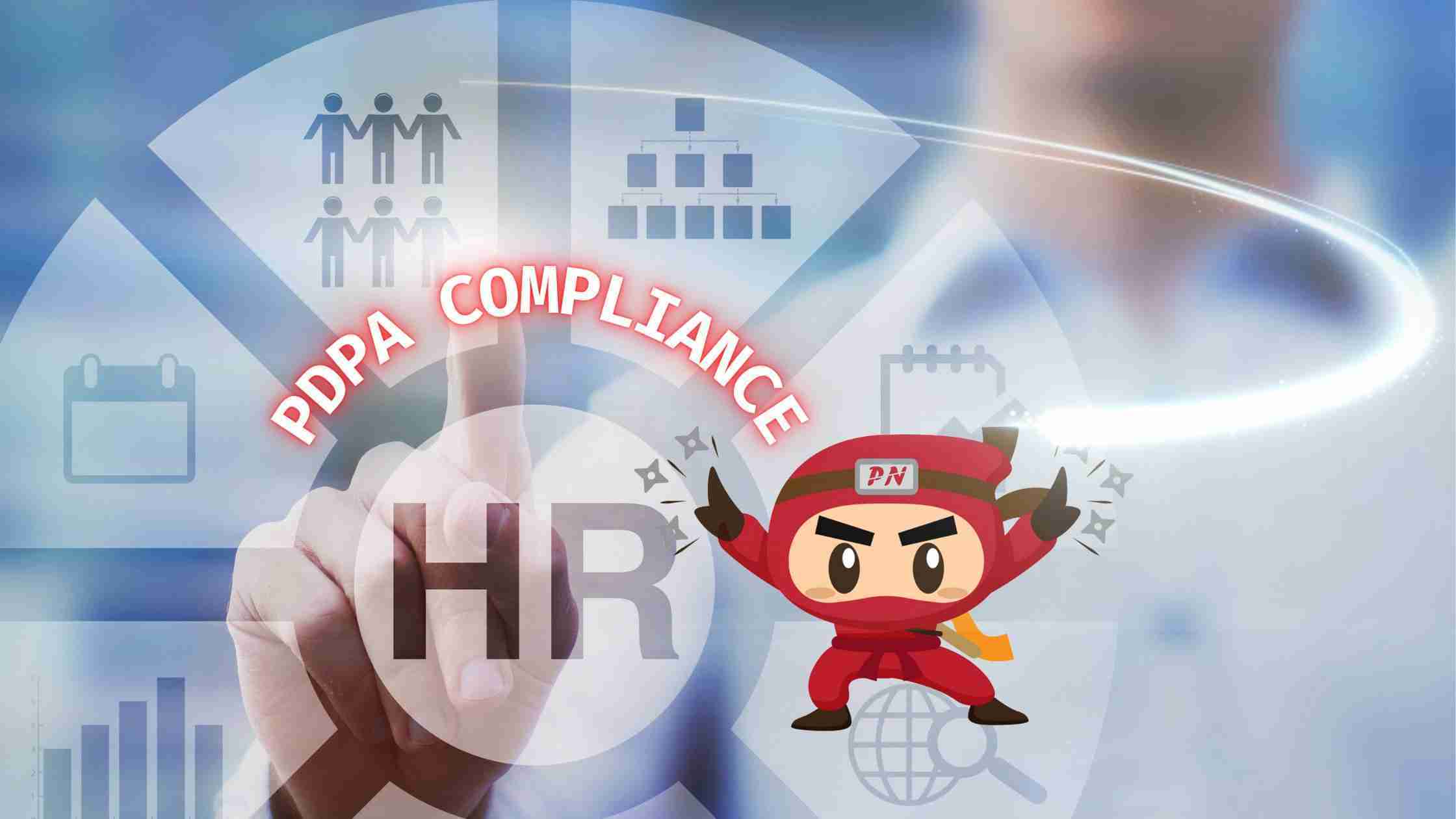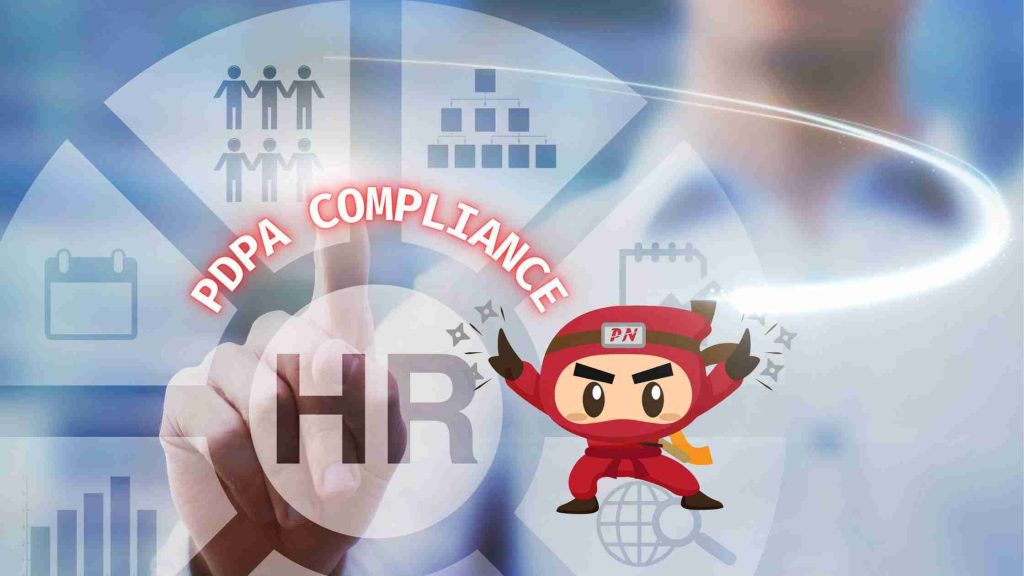KEEP IN TOUCH
Subscribe to our mailing list to get free tips on Data Protection and Cybersecurity updates weekly!







For years, the Personal Data Protection Act (PDPA) of Singapore has been focused in establishing and implementing standards and rules to govern the utilization of private personal data.
With the Personal Data Protection Commission (PDPC) imposing hefty penalties which can go up to a million SGD, an event of data breach can lead an organization to a financial disarray. Employees, being at the forefront of data collection and management, should therefore be supervised with utmost care and guidance. This brings us to a conclusion that PDPA Compliance for HR Managers in Singapore, along with other co-equally important departments, is a must.
As defined by the PDPA, personal data includes any information that can identify an individual, such as full name, National Registration Identity Card (NRIC) number, personal mobile number, and so on. HR professionals are primarily tasked to handle these type of data.
Pursuant to the Singapore’s data protection laws, companies are mandated to have clear written policies on the retention and destruction of personal data records; whether for current company affiliates or even failed job applicants.
HR Departments should always have a proper system of storing documents by keeping them in highly secured areas. As such, access to sensitive information must always be restricted only to those authorized.
Also Read: A Review of PDPC Undertakings July 2021 Cases
PDPA Compliance for HR Managers in Singapore would necessary include the proper collection, use, and disclosure of evaluative data of an employee. As a general rule, the PDPA provides that an employer may monitor his employees to determine their suitability, eligibility and qualifications for appointment, promotion, continuance in office and removal from their position.
Verily, an organization may utilize and manage the evaluative data of an individual absent any form of consent. This can include the tracking of emails and the use of company computer network resources.
But even so, notification to the employee is still required.

Even before the onset of the pandemic, most organizations are practicing open office layouts with little to no barriers in between employees. In fact, some even encourage shared workspaces. This can increase the risk of sensitive information falling to the hands of an unauthorized person.
HR Managers need to take reasonable precautions and arrangements in this set up. The boundaries for each staff must always be emphasized and observed. The key is educating your employees on the proper enforcement of your company’s data protection policy above fostering camaraderie in open office layouts.
Recent events also change this dynamic as employees collaborate with each other through online apps and programs. In a local context, PDPA Compliance for HR Managers in Singapore can be challenging especially in the work from home set up. Thus, HR Professionals must device a system of monitoring employee-to-employee communication especially when it concerns the use or transfer of personal data.
Finally, the practice of good cybersecurity hygiene among your employees could not be more emphasized on the role of HR. While anything which has to do with system security falls under the jurisdiction of Information Technology Department, the task of ensuring employee’s adherence to data protection policies naturally belongs to the Human Resource Department.
Most companies would often hold crash courses, seminars, or even full-training with regard to cybersecurity, upon the initiative or directive of HR Professionals. The best practice is to do this at a regular period/interval, to refresh your staff’s knowledge and to introduce also to new employees your company’s data protection policy.
Regardless of how you would go about it, PDPA Compliance for HR Managers in Singapore may be what’s standing between a data breach disaster and a successful and secured company operation.
A robust cybersecurity engine requires vigilant and well-informed employees. As such, your employees are as only as functional as how they are guided, informed, and treated with care, by your HR Manager.
Remember, compliance with the PDPA standards demands the participation of not just one– but all of your company’s most valuable assets- employees and departments alike.
Also Read: 5 Workplace Tips: Protecting Information on Mobile Devices